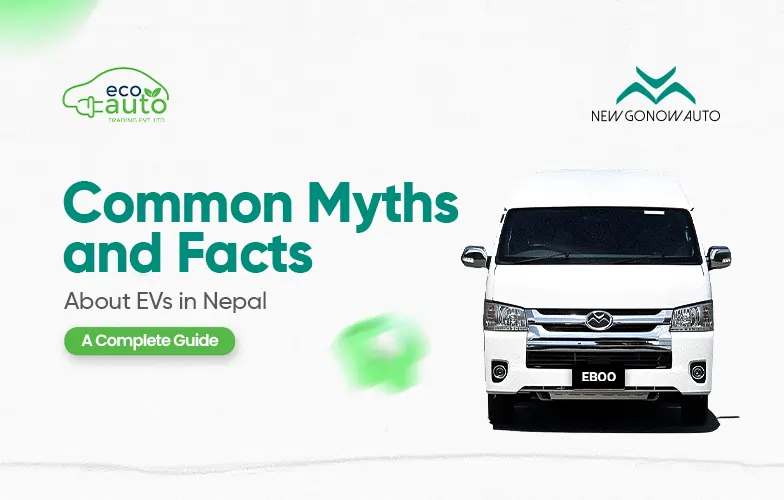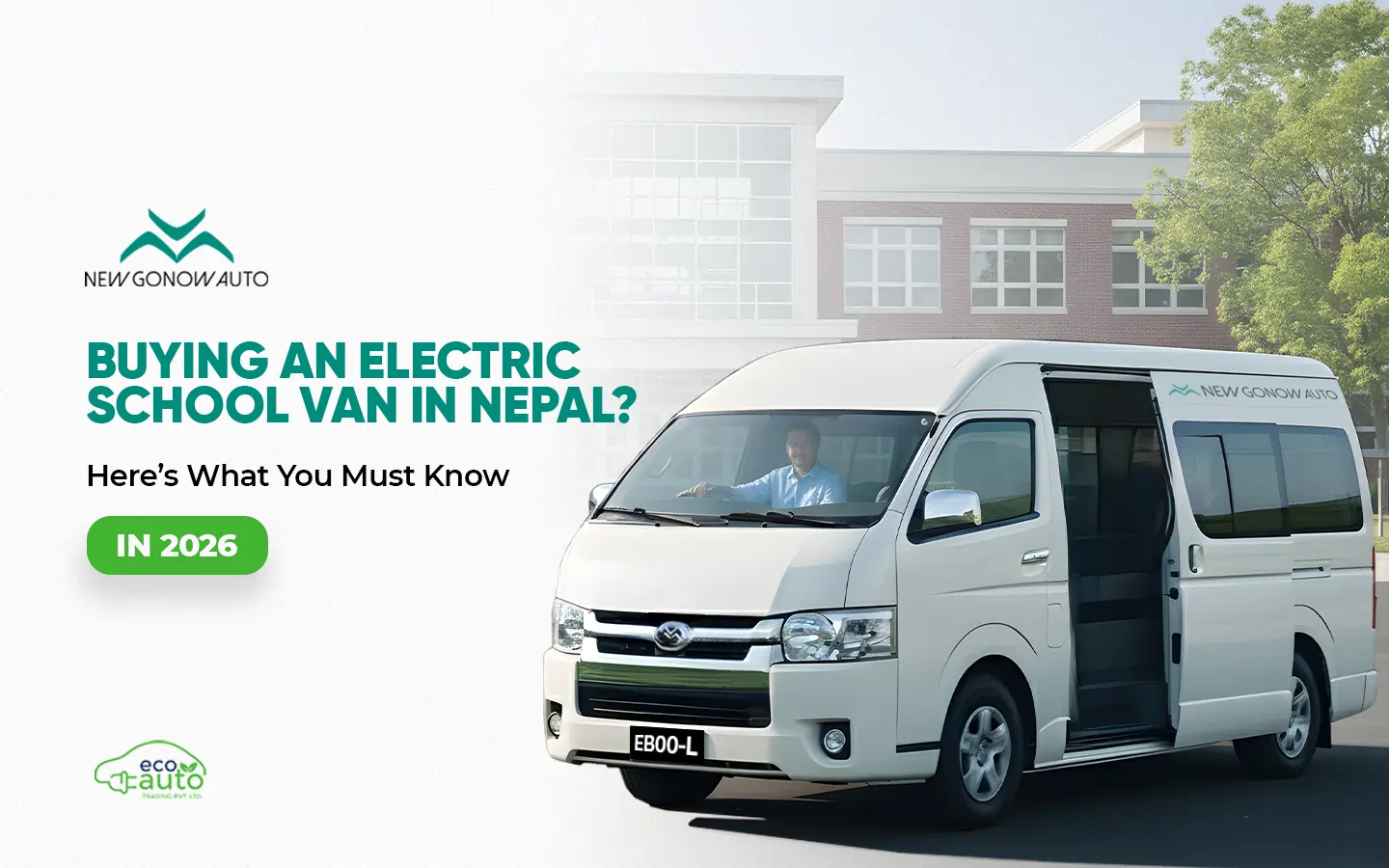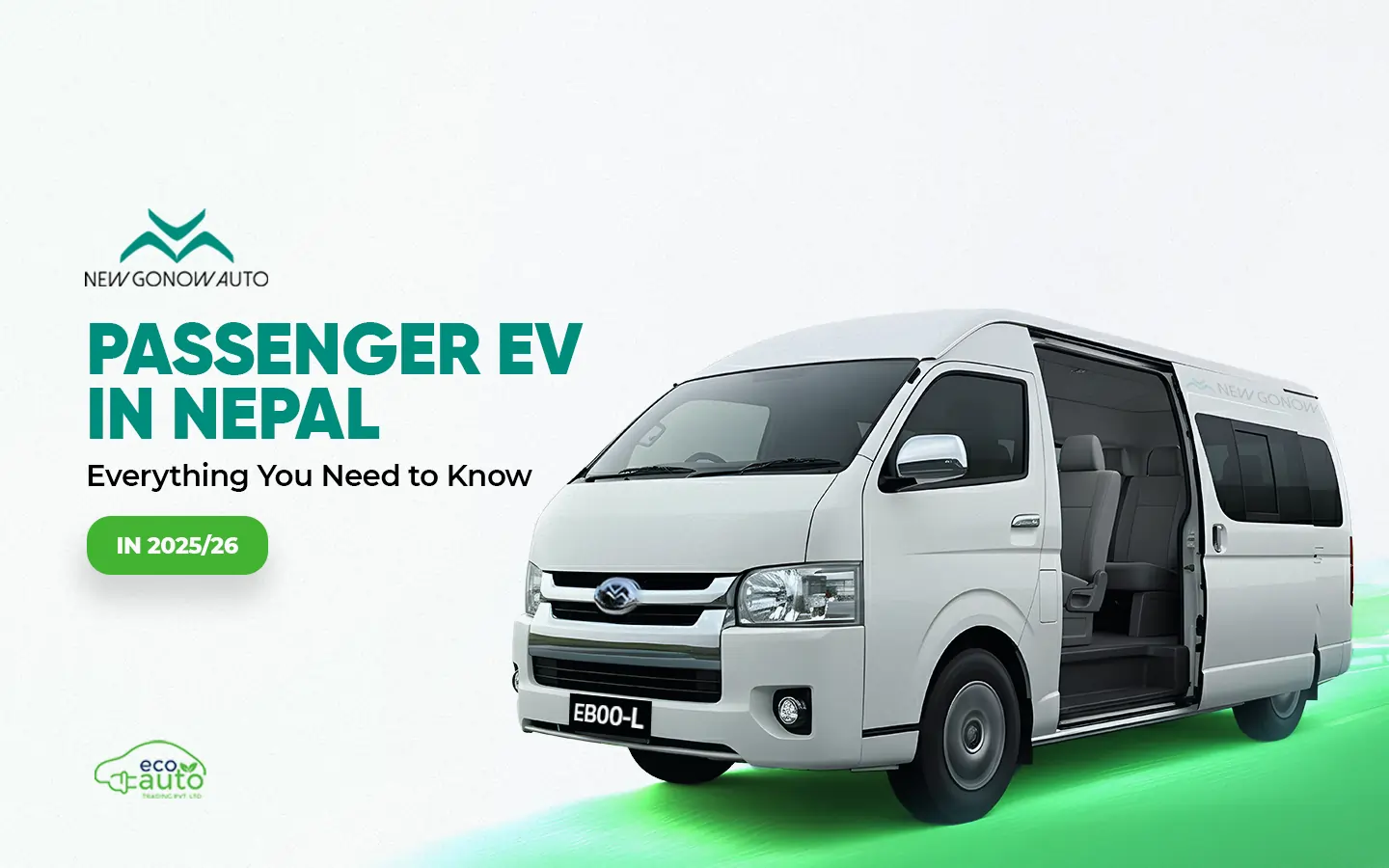
Common Myths and Facts About EVs in Nepal: A Complete Guide
Electric vehicles (EVs) in Nepal are more than just a passing trend; they’re changing the way people drive, transport goods, and think about the environment.
But here’s the problem: despite their growing popularity, myths and misconceptions about EVs in Nepal are still holding back many potential buyers. Some think EVs are too expensive, others worry about charging stations, and a few believe they can’t handle Nepal’s roads.
If you’re planning to buy an EV in Nepal whether for your family, business, or personal use this guide will separate fact from fiction, helping you make a smart, informed decision.
You’ll discover the truth about EV prices, vans, off-road performance, charging infrastructure, and more so you can stop worrying and start planning your next EV purchase.
Why EVs Are Becoming Popular in Nepal
Nepal is witnessing a rapid shift toward electric vehicles, and there are several reasons for this noticeable trend:
- Government Incentives: Reduced import taxes and subsidies have helped lower the entry barrier for owning electric vehicles in Nepal.
- Decreasing EV Price in Nepal: Competitive pricing with reliable options, including the cheapest EV in Nepal, has made EV ownership more financially feasible.
- Growing EV Charging Stations in Nepal: Charging infrastructure is expanding quickly, especially in urban and highway areas.
- Environmental Awareness: The urgent need to reduce pollution and rely on clean hydropower makes EVs a smart and responsible choice.
- Vehicle Variety: From small EV cars to rugged EV vans in Nepal and off-road SUVs, options for all kinds of users are available.
Common Myths vs Facts About EVs in Nepal
Myth 1: EVs Are Too Expensive in Nepal
Many believe electric cars are still out of reach for the average Nepali buyer.
Fact: The EV price in Nepal has dropped significantly, thanks to government tax incentives and more manufacturers entering the market. You can now find reliable, budget-friendly options even the cheapest EV in Nepal offering good range and features without breaking the bank.
- Modern electric vehicles come with cost-effective ownership and lower running expenses.
- Chinese EV car prices in Nepal, like those from BYD or Leapmotor, provide affordable yet quality choices.
- Financing options have improved, allowing more buyers to afford EVs.
Myth 2: There Are No Charging Stations in Nepal
A common fear is that EV owners will get stranded without charging options.
Fact: The network of EV charging stations in Nepal is expanding rapidly. There are hundreds of stations in major cities like Kathmandu, Pokhara, and along important highways. Fast chargers and home charger kits further ease concerns about range and accessibility.
- Public and private sectors are investing heavily in charging infrastructure.
- Apps and maps now guide users to nearby charging points.
- Home charging installation is increasingly common for convenience.
Myth 3: EVs Can’t Handle Nepal’s Off-Road Terrain
With so much mountainous and rugged terrain, some doubt EVs’ ruggedness in Nepal.
Fact: Engineering advances mean many EV models are built to conquer rough roads. The growing availability of EV for off-road in Nepal, including SUVs and pickups, allows owners to drive confidently on hills, rough terrain, and steep roads.
- Several EV models provide high ground clearance, all-wheel drive, and tough suspension.
- Electric off-road vehicles offer immediate torque, beneficial for climbing and navigating bumpy roads.
Myth 4: EV Vans in Nepal Are Not Practical for Everyday Use
Skepticism remains about EV vans’ range and efficiency for business or family transport.
Fact: EV vans in Nepal have become practical, reliable, and cost-efficient solutions for businesses, schools, and family travel. They offer substantial passenger capacity, good battery life for daily and long-distance use, and savings on fuel and maintenance.
- EV vans reduce operating costs and pollution.
- They are increasingly chosen by schools, tour operators, and small businesses.
- Charging infrastructure supports extended usage without hassle.
Myth 5: All EVs in Nepal Are Chinese and May Lack Quality
Many worry that Nepal’s EV market is flooded with low-quality Chinese imports.
Fact: While Chinese EV car prices in Nepal are competitive and they dominate market share, buyers also have access to trusted brands from India, South Korea, and Europe. Nepali dealerships provide warranties and service options ensuring quality and support.
- Indian brands such as Tata offer popular models.
- South Korean companies like Hyundai have launched reliable EVs in Nepal.
- Quality assurance standards continue to improve across the market.
Benefits of Choosing an EV in Nepal
Choosing an EV in Nepal has multiple advantages:
- Lower Fuel and Maintenance Costs: Electricity is cheaper than fuel; EVs have fewer moving parts, reducing service needs.
- Environmental Gains: EVs produce zero tailpipe emissions, contributing to cleaner air and a greener Nepal.
- Government Incentives: Tax breaks and easier financing improve affordability.
- Smooth and Quiet Driving Experience: Electric motors provide instant torque, making drives more enjoyable, especially on hills and rough roads.
- Long-Term Savings: Despite higher upfront costs, total ownership costs tend to be lower.
How to Choose the Right EV in Nepal
Picking the right electric vehicle depends on your personal and practical needs. Keep these factors in mind:
1. Price and Budget
Compare EV vehicles in Nepal price to find a model that suits your financial situation.
- Budget models start from around NPR 20 lakh.
- Premium off-road SUVs and vans go higher, offering more features and range.
2. Battery Range
Your travel needs determine the ideal battery range:
- For urban daily travel, 200+ km of range is recommended.
- For longer routes or business use, aim for EVs with 350+ km range.
3. Charging Access
Check the availability of EV charging stations in Nepal near your home, workplace, or along common routes.
- Consider installing a home charger for convenience.
- Ensure charging infrastructure supports your daily and long-distance needs.
4. Vehicle Type and Use Case
Choose a model based on how you’ll use it:
- For families: Compact hatchbacks or sedans
- For businesses: Spacious EV vans in Nepal
- For adventure/off-road: SUVs and pickups designed for rugged terrain
5. Warranty and After-Sales Service
Ensure peace of mind with brands that offer:
- Reliable battery and vehicle warranties
- Accessible service centers across Nepal
- Strong after-sales support for maintenance and repairs
Conclusion: Make the Smart Switch to EVs in Nepal Today!
Nepal’s EV world is growing quickly, and there’s never been a better time to explore how an electric vehicle can fit into your life. Whether you’re curious about the cheapest EV in Nepal, looking for nearby charging stations, or interested in an EV for off-road adventures, there’s a model waiting just for you.
We understand that switching to an EV can feel like a big step but you don’t have to figure it out alone.Experience firsthand how an EV can save you money, make daily travel easier, and help protect our beautiful environment.
Take the first step today head to your local showroom or visit ecoauto Nepal and discover the joy of driving electric!
FAQs
1. Are EVs good for Nepal?
Yes, EVs are a great choice for Nepal due to lower running costs, government tax benefits, and the increasing number of EV charging stations in Nepal.
2. What is the average EV price in Nepal?
The EV price in Nepal starts from around NPR 25 lakhs for the cheapest EV in Nepal and goes up depending on brand, battery range, and features.
3. Which is the cheapest EV in Nepal?
Currently, Chinese EV car price in Nepal is the most affordable, with entry-level models starting under NPR 25 lakhs, making them budget-friendly for first-time buyers.
4. How many EV charging stations are there in Nepal?
EV charging stations in Nepal are expanding rapidly, with dozens of public and private stations available in major cities and highways.
5. Can EVs run on off-road roads in Nepal?
Yes, some EV vehicles in Nepal are designed for tougher terrain. While not all models are suitable, EV for off-road in Nepal is improving with new SUV and van options.




